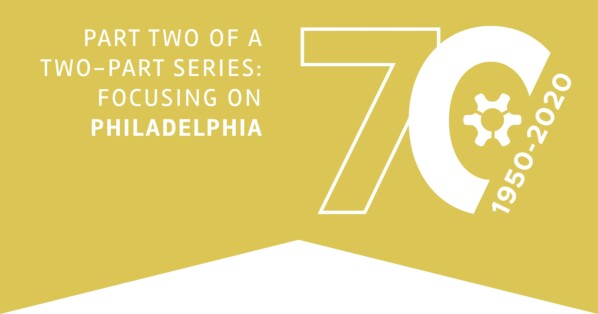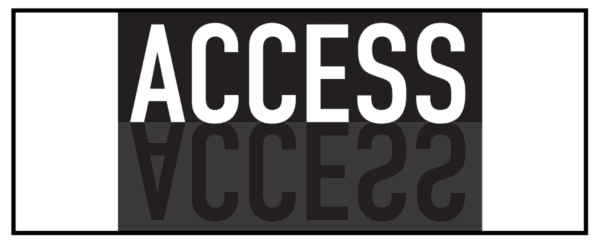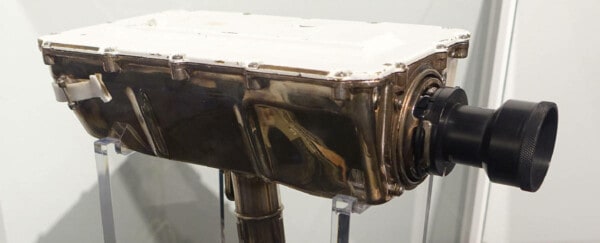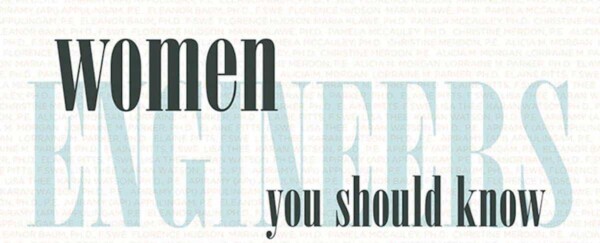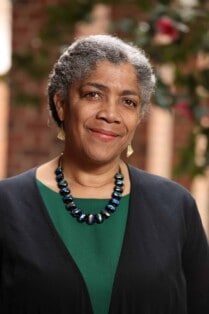
A Google search for “engineering ethics classes” turns up some 65 million results. But a wrenching experience 32 years ago — when Rosalyn W. Berne, Ph.D., gave birth to a baby daughter with no brain — defined Dr. Berne’s status as mother of the movement. The director of the Center for Engineering Ethics and Society at the National Academy of Engineering, Dr. Berne said her struggle with medical protocols required for her to donate her daughter’s organs propelled her to face excruciating questions of life and death — and technology.
Knowing in advance that her baby would be born without a brain, she had hoped to donate her daughter’s vital organs when she gave birth, but procedures regarding end-of-life care required that, to be considered a candidate for donation, no brain waves could be detectable from the newborn’s brainstem. Dr. Berne succeeded in donating her daughter’s corneas and heart valve after death, although ethical complexities thwarted her efforts to donate the heart, lungs, kidneys, or liver.
“[The newborn] spent three days in the NICU (neonatal intensive care unit) in Virginia. Nurses had to intubate the newborn, place a number of catheters and insert multiple needles into her arteries to keep her alive,” Dr. Berne said. “My husband and I said to each other, ‘This is not fair to her. She’s still our daughter — a living being. She shouldn’t have to go through this.’ We turned off the machines.”
Dr. Berne appeared on “The Today Show” to talk about the ethical challenges of using anencephalic newborn babies as organ donors; at the time, the Baby Theresa case was on appeal to the Florida Supreme Court. In that well-known case, the Florida Supreme Court had ruled that “organs may not be taken for transplant from infants born without fully developed brains as long as the infants are legally alive. The court based its definition of death on heart and lung activity” (Orlando Sentinel, Nov. 13, 1992).
Her overwhelming intellectual inquiry and need to understand her excruciating experience led Dr. Berne to earn her Ph.D. in religious studies, with a focus on bioethics, in her early 30s. She asked herself, “Why is it so complicated to do what feels like the right thing? I’ve got to understand what just happened to me and my child, and why it’s so difficult to understand what is right. We have the machinery and technology now to do things we couldn’t do before.”
These questions, she said, “push us to ask: ‘What is death? What is life? When do we intervene?’”
SOCIAL/ETHICAL IMPLICATIONS AND LONG-TERM IMPACTS
Dr. Berne went on to have two children. They’re now ages 27 and 30 and, as she describes it, “the delight of my life.” Yet she was intent on getting beyond her personal ethical dilemma and asking the people who make today’s increasingly sophisticated devices, machines, and technological systems to consider the social/ethical implications and long-term impacts of their work.
“It’s really tricky — where does the responsibility lie? How do we prevent unintended consequences?” Dr. Berne said. “We’d like to say, ‘If it’s unethical, don’t do it.’ But it’s a little murkier. … That’s where my studies, teaching, and work have taken me,” she added.
“My passion now is to try to get engineers, business people, and policymakers to see such issues as a matter of ethics — for us to be really serious in considering long-term effects in the determination of what’s right and what’s wrong,” said Dr. Berne, who is on leave from her position as an associate professor of engineering and society at the University of Virginia to serve as director of the Center for Engineering Ethics and Society at the NAE.
Prior to obtaining her Ph.D., Dr. Berne earned her bachelor’s degree in speech communications and her master’s in communication studies, aiming to go into speechwriting or a media job. When Dr. Berne teaches, she challenges her students with questions that reach into the broader social implications of their work — engineering, as she describes it, is “a noble profession that’s attempting to improve the quality of life.”
Yet the idealism gets lost in institutional needs, such as making a profit. “I don’t know if it’s possible to resolve such value conflicts,” Dr. Berne said. She pushes on, asking questions: As a society, why are people on extended life support when their prognosis is poor? When is death inevitable? Why are we creating tools to extend life without quality of life?
“The only way I see [to advance ethics as an issue] is through education, so people who’ll eventually be policymakers and other kinds of leaders will be in a position to ask these questions,” Dr. Berne said. “Technology developments are moving so fast. I don’t know how you slow it down enough to say, ‘Where are we going?’”
For example, “We haven’t adequately addressed the ethics of artificial intelligence. We have exponentially expanded surveillance systems,” she said. “The use of algorithms to mine personal data and predict individual and collective behavior is already prevalent. We are quickly losing control.”
Similar issues arise when seeking energy independence. “We need to look at the fracking process and take the time to truly understand what might be its impact on earth systems,” Dr. Berne said. Additionally, “With bottled water, we’re seeing the world’s access to clean water increasingly dependent on who has the money to pay for it.”
FROM PHILOSOPHICAL DEBATE TO PUBLIC POLICY
Dr. Berne is involved with the Online Ethics Center (OEC) — a website project supported by a grant from the National Science Foundation to help those who teach ethics courses, to serve as a resource for students of ethics, and to offer professional communities of practice opportunities to exchange ideas about pressing issues in engineering and science. How might these philosophical debates translate into public policy — and does Dr. Berne hope that they do?
“Public policy is often influenced by competing factors, including individual private interests, special and corporate interests, and economic drivers such as international competition for new market opportunities,” she said. “It is not apparent to me that our policymakers are incentivized to give primary consideration to ethics. In fact, what would lead them to do so?”
Optimistic that her students will inform others as they go out into the world, Dr.Berne said, “I would like to believe that with ethics in the core curriculum of engineering education, at the very least, engineering graduates can provide expertise that policymakers could rely on for sound and well-informed guidance.”
Indeed, the students’ accomplishments keep Dr. Berne motivated and resolute. “Some of the students I have taught have been quite inspiring, giving me good reason to be hopeful,” she said. “There is a lot at stake in engineering developments, some very serious. This awareness keeps me focused.”
While Dr. Berne doesn’t emphasize workplace discrimination, per se, she assigns her students to watch movies and documentaries, including films such as “Silkwood” and “Erin Brockovich,” to provide fodder for discussions about ways in which unethical policies and practices can lead to workplace discrimination. Additionally, “The Lives of Others” is an excellent film for discussing how policy and privacy intersect with workplace practices and expectations, she said. The German movie, released after the Berlin Wall’s fall, explores how a captain in the Stasi — East Germany’s feared secret police — is ordered to spy on a playwright who the captain’s superior wants to show is disloyal.
As the late Chicago Sun-Times movie critic Roger Ebert wrote, East Germany’s practices of ignoring habeas corpus, practicing secret torture, and eavesdropping and wiretapping its citizens ultimately destroyed it, and could well lead to other countries’ destructions.
In addition to writing a science fiction novel, Waiting in the Silence, Dr. Berne is the author of Nanotalk, a book of conversations and explorations with 35 nano-research engineers and scientists, who talk about their ideas, perceptions, experiences, and beliefs about their work. They discuss nature, change, humanity, and the global future, and Dr. Berne uses the conversations to explore nanotech’s significance to humanity and how its practitioners might pursue it ethically and conscientiously.
Her second textbook, Creating Life from Life: Biotechnology and Science Fiction, is a collection of essays by scientists, historians, students, and philosophers of science that meld biotech into science fiction stories. By doing so, the book opens a conversation about the morality of what we may be in the future, and what it may mean to be human as biotech continues to evolve.
Will such discussions ultimately reverberate throughout engineering — changing its very culture?
Dr. Berne hopes that educationally/ethically prepared engineers can at least make choices that won’t have to come as a surprise, or be made in ignorance.
It’s not all black and white, however. “Values sometimes compete in engineering culture,” she said. “The Challenger (space shuttle orbiter explosion) case is a great example of this. So are more recent cases involving Volkswagen (2015 diesel emissions scandal), and Facebook (when up to 87 million users’ personal data was accessed by a political consulting firm).
“Value conflicts can lead to professional compromises and difficult choices,” Dr. Berne said.
As she noted in an interview for the University of Virginia website, “We didn’t pause and ask questions with the introduction of computers, or cell phones, or the internet. We simply adopted their use and adapted to them. We’re keeping up in the marketplace, but there’s a sense that we can’t stop it. With autonomous vehicles we are pausing, but there are people who say it is inevitable.”
“As soon as you say it is ‘inevitable,’ that is when we need to ask: Do we still have choices?” Dr. Berne said. “And what have we given up to get to where we are?”
Dr. Berne sees engineers and society poised at a crucial moment in our history. She said the most important question is, “Will we become conscientious and socially responsible?”
She intends to at least encourage engineers to pause and think about it. “I like asking, ‘Does this fit with your values and beliefs? If not, why are you doing it?’” she said.
“I’m talking about listening and understanding. Why don’t we take the time to do that? That would mean we genuinely care about one another. I don’t think we do that … What would we do if we genuinely responded and cared about each other?” she asked. “What would engineering look like then?”
Dr. Berne challenged engineering undergraduate and graduate-degree earners in a Dec. 14, 2019, speech, noting that no one could have predicted the serious problems that polymers and plastics have created. “Let’s assume that these were good engineers, meaning honest, hard-working, and well-intended people. … But is that good enough to engineer for good?” she said at the Assembly of the Engineers at The University of Texas at El Paso. “Maybe not. Given the tremendous influence of engineering on the world, and the awesome responsibility that brings, perhaps we need a different standard of engineering for good.”
Perhaps, she said, that standard must include “caring, genuine caring, about human beings, one another, and the earth we call home. So here is my question to you, as engineers who I assume intend to do good in your profession: How will you know when you are engineering for good?”
No More Assumptions: User Voices Are Key
Engineers are starting to think about the accessibility of their projects even before they start a design — and that philosophy will become even more vital as more people work from home.
Yet they should take care to first listen to the people who’ll be directly affected, such as users with disabilities, says Becca Monteleone, a disability studies scholar who worked in spring 2019 as a Christine Mirzayan Science and Technology Policy Graduate fellow at the Center for Engineering Ethics and Society. The National Academy of Engineering awarded the fellowship.
“In the case of disability, we have for hundreds of years made the worst assumptions, so it’s time to start reframing how we think about an ‘ideal person,’” said Monteleone, a Ph.D. candidate at Arizona State University’s School for the Future of Innovation in Society. She will earn her doctorate in May 2020 in the sociology of science and medicine, focusing on how people design, discuss, and interact with medical technologies.
The first step is to trust that people with disabilities are able to identify both what they need in terms of assistance, and know their competencies better than someone who interviews them and makes assumptions, Monteleone said.
“Having more disabled voices as part of these dialogues is key,” she said.
Stigmas also remain strong about people with what are sometimes called “invisible disabilities,” such as anxiety disorders and other mental health conditions. “It’s not only access or lack of access; it’s the presumption of competence,” Monteleone said. “And addressing this stigma is both as simple and as difficult as creating spaces that privilege voices that had been silenced before.”
How is this accomplished?
Standards work is underway. The IEEE TechEthics program, for example, focuses on the ethical and societal impacts of technologies themselves.
Additionally, the IEEE has published Ethically Aligned Design: A Vision for Prioritizing Human Well-being with Autonomous and Intelligent Systems to encourage technologists to prioritize ethical considerations in the creation of such systems. The document’s purpose aims, in part, to advance a public discussion about how engineers can establish “ethical and social implementations for intelligent and autonomous systems and technologies.” The goal is to align technologies with values and ethical principles that prioritize human well-being, and to work for national and global policies that align with those principles.
“Engineering for Good” was written by Sandra Guy, SWE Contributor. This article appears in the 2020 spring issue of SWE Magazine.
Read more from the 2020 spring issue of SWE Magazine:
- Feature: Toward More Accessible Work Environments
- Feature: Inclusive Design for Living Longer
- Feature: Women Engineers You Should Know
- SWE Forum: From Congressional Visits to the “New Normal” Brought by COVID-19
- Opening Thoughts: Access: A Matter of Human Rights
- News & Advocacy: COVID-19: STEM Strikes Back
- News & Advocacy: Momentum, Authenticity, and Pivoting: The State of Women in Politics
- News & Advocacy: Visiting Congress During a Global Health Crisis
- News & Advocacy: People
- Career Pathways: Shelter-at-Home Orders Put Spotlight on Disability Accommodations
- President’s Note: Joy and Relevance in the SWE Mission
- Life and Work: Is Sitting the New Smoking?
- Reinvention: From Fixing up My Home to Helping Others Construct Theirs
- Media: Invisible Women: Exposing Data Bias in a World Designed for Men
- Viewpoint: Then and Now: Personal Reflections on Accessibility
- In Memoriam: Marta Kindya, 1946-2019
- Closing Thoughts: Community in Times of Crisis
- Scrapbook: Announcing a New Arrival



